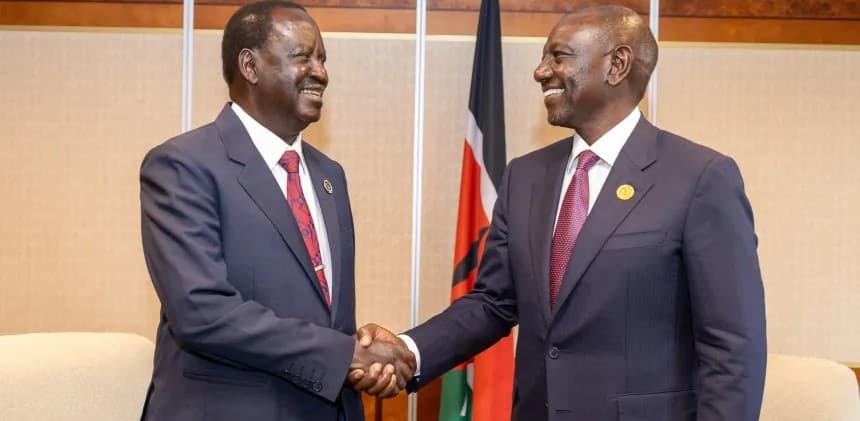We're loading the full news article for you. This includes the article content, images, author information, and related articles.
President William Ruto and opposition leader Raila Odinga have appointed a committee chaired by Agnes Zani to implement a 10-point agenda that seeks to promote inclusivity, strengthen devolution, create jobs for youth and fight corruption.

Nairobi, Kenya – August 8, 2025 — In a landmark show of bipartisan cooperation, President William Ruto and opposition leader Raila Odinga have jointly appointed a five-member technical committee tasked with implementing the 10-point reform agenda and the recommendations of the National Dialogue Committee (NADCO).
The new team, announced during a joint press statement at State House, will be chaired by former senator and education expert Dr. Agnes Zani. Other members include:
Fatuma Ibrahim, a former commissioner at the National Cohesion and Integration Commission (NCIC)
Kevin Kiarie, a youth policy advocate
Gabriel Oguda, a public policy analyst and political commentator
Javas Bigambo, a constitutional lawyer and governance expert
The committee’s mandate is to translate political consensus into practical policy reforms, with its work anchored on the 10-point agenda agreed between Kenya Kwanza and Azimio la Umoja following months of nationwide protests in 2023 and 2024.
The agenda includes:
Strengthening devolution by raising county revenue allocations
Creating youth employment through targeted initiatives
Guaranteeing the right to peaceful assembly and protest
Institutionalising an effective and vibrant opposition
Advancing sustainable debt management
Intensifying the fight against corruption
Promoting inclusive economic growth and equal opportunity
The committee will engage with key stakeholders across government, civil society, the private sector, and youth groups. It is expected to submit progress reports every two months, culminating in a final report by March 7, 2026.
Political analysts see the formation of the team as an important trust-building measure following years of heightened tensions between government and opposition supporters.
“This signals a new phase in Kenya’s democratic journey—where structured, bipartisan dialogue replaces protest as a vehicle for reform,” said Dr. Roselyn Wanjiru, a political economy lecturer at Strathmore University.
Observers note that both Ruto and Odinga stand to gain politically if the team succeeds: Ruto by demonstrating responsiveness to public concerns, and Odinga by showing statesmanship ahead of his broader continental ambitions with the African Union.
While the formation of the committee has been widely praised, questions remain about implementation fidelity—whether the political class will act decisively on its recommendations.
“Committees are great, but Kenya’s history is littered with shelved reports,” said Jeremiah Kirori, a governance consultant. “The litmus test will be whether this leads to legislation, budget reform, or constitutional amendments.”
The taskforce’s credibility will hinge on transparency, public consultation, and how well it communicates progress to citizens.
|
Issue |
Significance |
|---|---|
|
National Unity |
Represents rare cross-party consensus in a deeply polarised political landscape. |
|
Youth and Economic Focus |
Addresses public concerns about jobs, fairness, and voice in policymaking. |
|
Governance & Reform |
Tackles systemic challenges like corruption, debt, and weak opposition structures. |
|
Democratic Maturity |
Replaces confrontation with institutional dialogue, strengthening constitutionalism. |
With Kenya standing at a critical juncture—navigating economic pressures, youth unrest, and regional instability—the success of this committee could shape the country’s political and governance trajectory for years to come.
Keep the conversation in one place—threads here stay linked to the story and in the forums.
Sign in to start a discussion
Start a conversation about this story and keep it linked here.
Other hot threads
E-sports and Gaming Community in Kenya
Active 9 months ago
The Role of Technology in Modern Agriculture (AgriTech)
Active 9 months ago
Popular Recreational Activities Across Counties
Active 9 months ago
Investing in Youth Sports Development Programs
Active 9 months ago
Key figures and persons of interest featured in this article